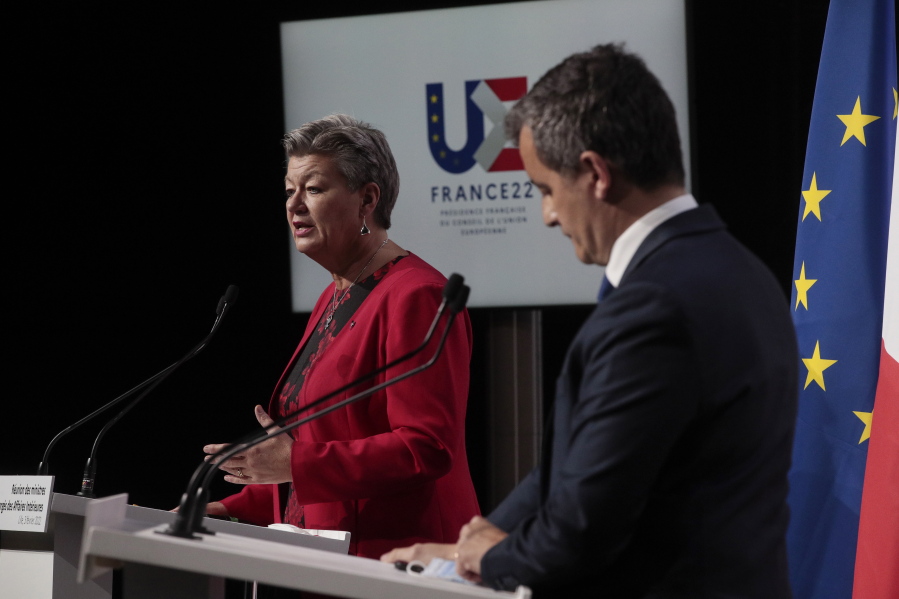LILLE, France — European Union interior ministers on Thursday agreed to create a new decision-making body amid efforts to beef up the 27-nation bloc’s borders, and to kick-start desperately needed reforms to the EU’s malfunctioning asylum system on a step-by-step basis.
The EU has been mired in a deep political crisis since well over 1 million people, many of them refugees fleeing war in Syria, began entering in 2015. Greece was overwhelmed by migrants landing on its islands on rafts and dinghies from Turkey. Other countries were slow or reluctant to help.
The old asylum system, based on the notion that the country where migrants first arrive must deal with them, collapsed. New reform proposals have failed to overcome the fundamental problem – who should take responsibility and what kind of help other countries should provide.
France, which currently holds the EU’s rotating presidency, is trying to reenergize the sweeping reform plan by tackling parts of it at a time.
At talks in Lille, in northern France, EU interior ministers agreed to discuss changes step-by-step, starting next month. French Interior Minister Gerald Darmanin, who acknowledged divisions, said “the idea was to change the method because the ‘all or nothing’ strategy until now was mostly leading to nothing.”
The first step will consist in setting up a mechanism to support EU nations where migrants first arrive. The so-called “solidarity” principle will be mandatory, Darmanin detailed. It will mean EU nations will have to accept taking asylum seekers or to provide financial support, he said.
Discussions look to be challenging, Darmanin acknowledged, especially when they will focus on numbers of asylum seekers to be allocated to member states and on the amount of the financial support.
In addition, EU nations approved a proposal from French President Emmanuel Macron to create a new body, the Schengen Council. It will gather members of the passport-free travel area so they can make decisions on migration policies, including preventing difficulties and bringing a quick response in case of crisis. The first meeting will be held on March 3.
The Schengen area comprises 26 countries — including non-EU nations Iceland, Liechtenstein, Norway and Switzerland. During the pandemic, many Schengen nations erected temporary border controls that went contrary to the zone’s “freedom of movement” precept.
The European Union’s Home Affairs commissioner, Ylva Johansson, praised the new body as “a great achievement,” saying it will help “strengthening the political governance of Schengen.”
In Lille, the ministers also were to discuss new proposals to respond to what have been dubbed “hybrid attacks” using migrants, after Belarusian President Alexander Lukashenko last summer invited thousands of people, many of them Iraqis, to Belarus with the promise of helping them to Europe.
Lithuania and Poland, notably, are working on border barriers to keep people out, and have also changed their national asylum rules to make it harder for people to stay.



